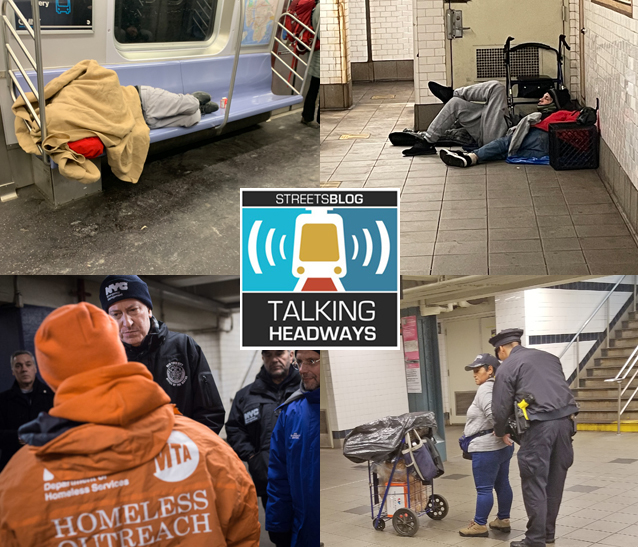This week, we’re going to the Rail~Volution (Now MPact) Conference in Miami. On the agenda: Daniel Gibson, Regional Vice President of Miami Dade Allegany Franciscan Ministries moderates a panel featuring LA Metro CEO Stephanie Wiggins, Philadelphia's SEPTA CEO Leslie Richards, and Diana Stanley, CEO of homeless services provider The Lord’s Place to talk about homelessness and public transportation. They chat about the need for more federal agency coordination among transportation, health, and human services as well as how transit agencies are tackling the issues vulnerable populations face.
If you prefer to read, check out the full unedited transcript here. And if you like an edited excerpt, see below the player:
Daniel Gibson: And so my question to you all, because we’re not, you’re not represented your organization’s bravery to take in this as a mission that you are gonna talk about. What did that look like? How did you guys make, not why, but how did you make that change and how did your organization receive that, that duty?
Stephanie Wiggins: Well, I think first for Metro, it came from our board. Our board asked us to partner with the county on community, county, and city outreach teams — and for Metro to fund those teams to be dedicated to our system. And I have to admit, as a transit agency, we got into it kicking and screaming because we were like, "This is not our issue. This is not our issue. This is their issue. Right?" But the reality is it was affecting the customer experience and the quality of the service that we were providing And really just last week, we passed a revolutionary new motion that says now we’re going to coordinate with the county and explore services and have this partnership on how we address homelessness.
Daniel Gibson: And would you say that was a smooth transition? Or how long did it take for you all to say, "Yes, we’re gonna incorporate homeless services into our mission"? Or has it formally been introduced into sort of your scope of services?
Stephanie Wiggins: It, it’s never formally in our mission. It was in our scope of services as of 2017. But I think what our board did last week is they officially said, "You know what, we’re in the transit service business, not the homelessness business. And we’re going to work with the county and cities. And more important, the county now says we’re gonna work with you, Metro." And that’s huge.
Leslie Richards: So our story is very different. First of all, just so you understand, when I came on in January 2020, our board is conservative and majority Republican. And when I came on, the pandemic hit us very hard. And in fact, I remember speaking to the chief of staff at LA Metro, I was reaching out to everybody at the time, in early 2020s before you had come aboard Stephanie.
And at, at this point, we had just lost our seventh employee to Covid. And hundreds were coming down with Covid. And I remember speaking in LA and they said, "Well, we had one case at this point," and I couldn’t understand how we were feeling so hit by Covid and others weren’t feeling it yet. We were seeing homelessness in a different way. And instead of it coming from the board, I had to go to the board and say, "We have to do something and we have to deal compassionately and sensitively to this issue. And it’s a business case issue because if we don’t figure this out, no one is ever gonna come back. There’ll be no reason for us to run the system."
And I will say the board got it immediately. They understood we have their full backing. But I must have heard — I forgot how many times, Leslie — "We’re not a social service agency. We’re a transit agency." I heard that over and over again. And I said, however, "We’re not a transit agency if we have nobody to take anywhere." Right? And they got it immediately. But that’s how it started for us. And then, you know, with the board’s full support, in fact, we went from spending around 30 million on law enforcement and safety and cleaning. We now spend over $50 million and that’s all the board’s support in doing that. And we’ll spend what we need to make sure that our system is safe and people feel safe on our system. And we are helping the community as well.






